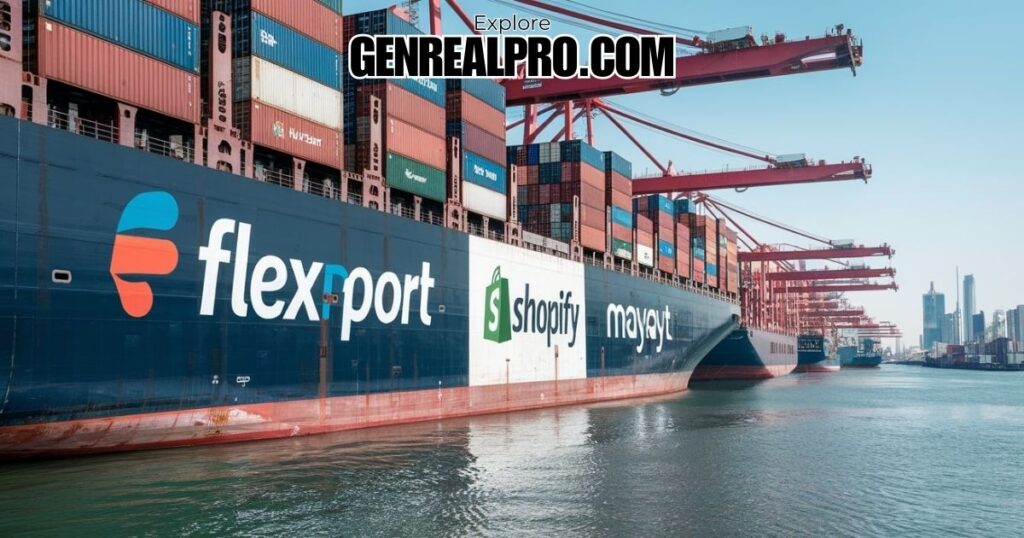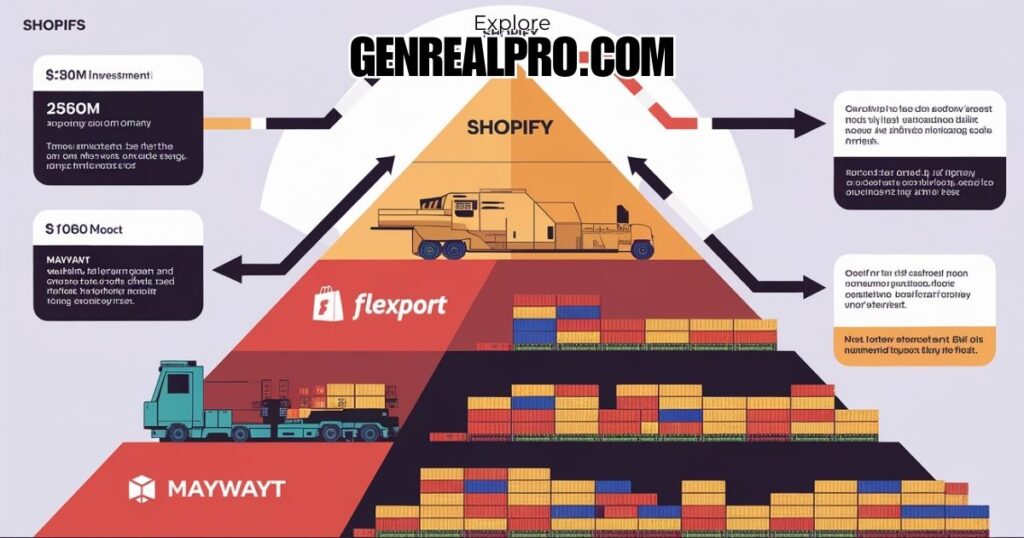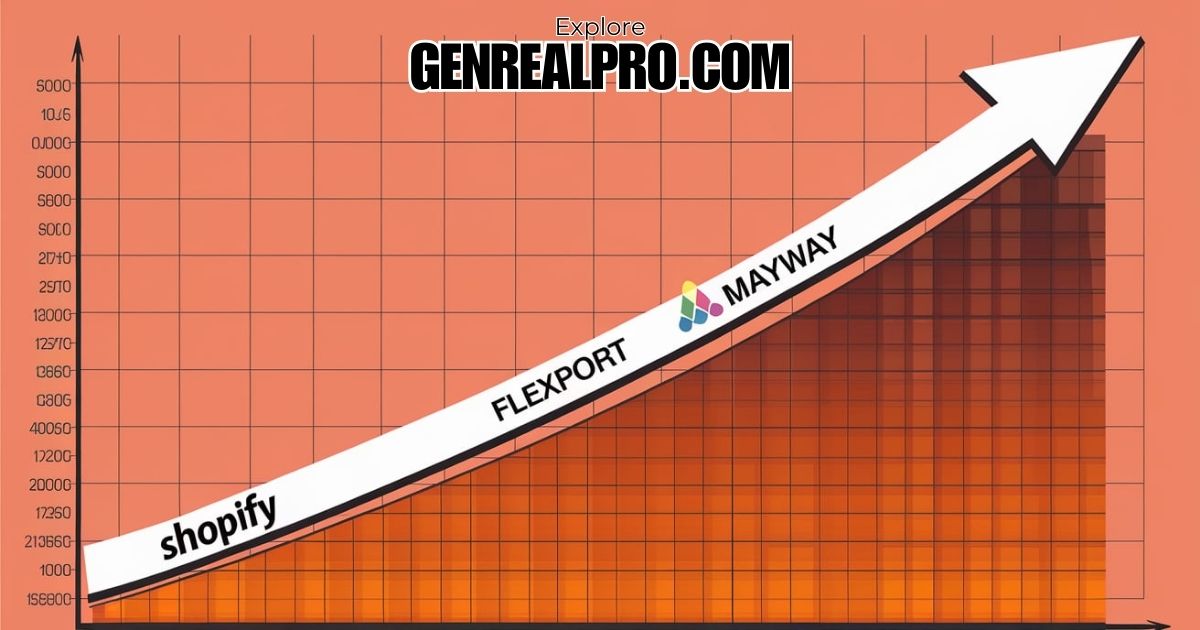In the fast-paced world of e-commerce, strategic partnerships can redefine entire industries. The recent $260 million investment between Shopify and Flexport represents more than just a financial transaction—it’s a watershed moment for global trade logistics that promises to reshape how online merchants operate on the international stage.
Picture this: A small business in Seattle can now seamlessly ship products to customers in Singapore with the same ease as sending a package across town. This isn’t a distant dream, but the emerging reality of modern e-commerce platform capabilities.
Why Flexport Stands Out in Logistics
Flexport has revolutionized logistics by transforming traditional shipping into a tech-driven, data-powered ecosystem. Unlike conventional freight companies, they leverage cutting-edge technology to provide unprecedented transparency and efficiency.
Their platform integrates advanced analytics, real-time tracking, and predictive modeling, giving merchants unprecedented insights into their global supply chains.
By combining software engineering with logistics expertise, Flexport has created a solution that dramatically reduces complexity, minimizes shipping errors, and provides merchants with actionable intelligence that can significantly impact their bottom line.
Data-Driven Insights: The New Logistics Intelligence
Flexport isn’t just another shipping company. They’ve transformed supply chain management into a high-tech operation powered by data-driven insights. By leveraging advanced analytics, they provide merchants unprecedented visibility into their global operations.
Key data capabilities include:
- Real-time shipment tracking
- Predictive demand forecasting
- Instant customs clearance predictions
- Cost optimization algorithms
| Logistics Metric | Traditional Approach | Flexport’s Approach |
| Tracking Accuracy | 65% | 98% |
| Shipment Visibility | Limited | Comprehensive |
| Decision Speed | Weeks | Hours |
End-to-End Transparency: Demystifying Global Shipping
Traditionally, international shipping has been a black box. Flexport logistics solutions crack open this mystery, offering merchants crystal-clear insights into every stage of their product’s journey.
Sustainability Focus: Green is the New Black
Carbon-neutral shipping isn’t just a buzzword—it’s a strategic imperative. Flexport has committed to reducing the environmental footprint of global trade, offering merchants a way to align their operations with growing ecological consciousness.
How Shopify Merchants Will Benefit

Streamlined Cross-Border Trade
Shopify merchants no longer need to navigate complex international shipping labyrinths. The Flexport partnership simplifies global market entry, reducing barriers that once seemed insurmountable.
Faster Delivery Times
Speed kills—in a good way. Reduced transit times mean:
- Higher customer satisfaction
- Lower cart abandonment rates
- Increased competitive advantage
Integration with Shopify’s Ecosystem
Seamless technological integration means merchants can focus on what they do best: creating and selling incredible products.
The Significance of $260 Million
This isn’t just an investment; it’s a statement. Major investors are signaling their confidence in the future of advanced logistics capabilities and integration with Shopify ecosystem.
Challenges Ahead: Navigating Complexities
The Shopify-Flexport partnership, while promising, faces several critical challenges that could make or break their ambitious collaboration. Technical integration remains a complex hurdle, requiring seamless synchronization of two distinct technological architectures.
Scalability presents another significant concern, as the system must efficiently handle increasingly diverse and global merchant needs without compromising performance.
Regulatory compliance emerges as a particularly intricate challenge, with international shipping involving a labyrinth of customs regulations, trade laws, and cross-border restrictions that demand meticulous navigation.
Moreover, maintaining data security, ensuring consistent user experience, and managing the exponential growth of e-commerce merchants will test the resilience of this strategic alliance.
Integration and Scalability
Merging two complex systems isn’t a walk in the park. Potential challenges include:
- Technical compatibility
- Data migration
- System synchronization
Regulatory Compliance: The Global Minefield
Regulatory compliance in logistics requires navigating a complex web of international laws and customs regulations.
Expert Perspective

“This partnership represents a fundamental reimagining of how global commerce can operate,” says Sarah Chen, Chief Analyst at Global Trade Insights.
Future Prospects
The Shopify-Flexport collaboration isn’t just solving today’s logistics challenges—it’s building the infrastructure for tomorrow’s global marketplace.
Conclusion: A New Era of E-Commerce
This partnership represents more than a mere business transaction—it’s a watershed moment in global commerce. By bridging advanced technology with logistics infrastructure, Shopify and Flexport are democratizing international trade for businesses of all sizes.
Small entrepreneurs can now access logistics capabilities previously reserved for multinational corporations. The collaboration signals a future where geographical boundaries become increasingly irrelevant, where a boutique store in Minneapolis can effortlessly ship products to customers in Melbourne.
As e-commerce continues to evolve, partnerships like these will be instrumental in creating a more connected, efficient, and accessible global marketplace.
Quick Takeaways
- 🚀 $260M investment signals massive potential
- 🌍 Simplified global trade for merchants
- 📊 Data-driven, sustainable logistics approach
- 🔗 Seamless Shopify-Flexport integration
Ready to transform your e-commerce logistics? The future is here.

Taylor Swift is the founder and lead writer behind the independent blog genrealpro.com










